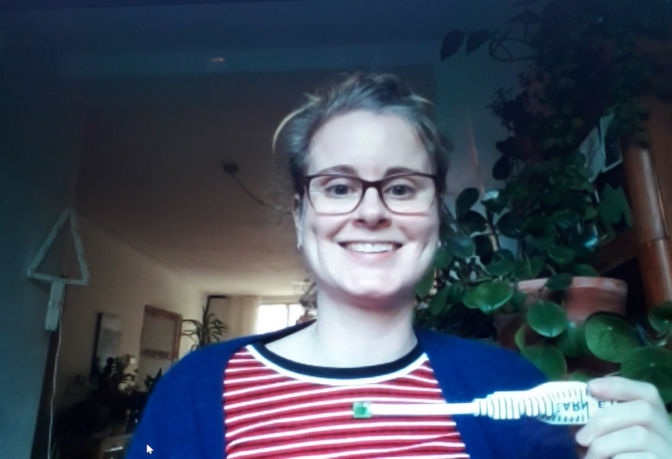Jantine Claus from the City of Eindhoven gives insights into the municipality’s work on energy transition. The EnergyMeasures project is one component of Eindhoven’s strategies to lower energy consumption. EARN-E, a low-budget device will be used to support energy-vulnerable households.
What do you do at the municipality of Eindhoven and how is your job connected to the topic of energy poverty?
I work at the municipality as a project leader. I am part of a team that deals with the energy transition in the city. With a team of 15 people, we cover everything: from making our own municipal buildings climate neutral to Green Deals with industry, from projects to disconnect all 120.000 homes in the city from natural gas to providing measures to promote a circular way of building.
My work involves working with the citizens, helping them to take the first steps towards a climate neutral and sustainable home. To make sure that everyone in the city, regardless of their financial status, can join the energy transition, is one of the main points of attention of my programme.
How many people in Eindhoven are affected by energy poverty and how does the municipality support households affected?
In Eindhoven, there are ca. 119.550 households. Of these homes, 51.440 have a low energy label: D or less. These homes most of the time, have a low insulation grade – for example, they still have single glass windows. We estimate that ca. 20.000 householders (17.1%) meet the criteria for energy poverty. 3.130 householders balance on the threshold: they get by, but are not left with a lot of income after paying all their bills. The group that is affected by energy poverty the most, are householders that:
- Rent their home from a social housing corporation
- Live in a house that was built before 1969
- Are single
- Are younger than 30
EnergyMeasures is one of the projects the city has to address the issue of energy poverty.
As a municipality, we support them by providing them with free energy saving products, with free energy advice by an energy coach. We are also working with the larger housing corporations to speed up the process of renovation for example.
How is the city of Eindhoven involved in the EnergyMeasures project?
Together with Het Pon and DuneWorks, and with local partner Energiebox, we have developed EnergieboxPLUS. The city hired three energy-coaches, who will start a year long engagement with 400 households in Eindhoven.
What are the target groups affected most that you want to reach?
In Eindhoven, for the EnergyMeasures project, we work closely together with different organisations in the city that help households in poverty. The group we would like to reach, are the ones renting a house from a social corporation and have a minimum income and/or receive benefits.
You are collaborating with EARN-E, a start-up that developed a support device that the city of Eindhoven will use in EnergyMeasures. Can you tell us more about the start-up? Where did the idea for such a device come from, out of what necessity?
Household energy use must be reduced to prevent climate change. To reduce the energy use with insight and data, more than 6 million smart meters have been installed in Dutch households and businesses (and nearly 200 million in the EU). We now know that smart meters alone are not smart enough to save on energy use.
We need a monitoring system that displays energy data in realtime and provides insight into what households and businesses can do to reduce their energy use and make their energy use more sustainable. But this system is rarely used because it is too expensive and complicated for many households and businesses.
EARN-E wants to change that.
What can energy poor households expect from it?
With EARN-E, anyone can easily save on energy consumption, emissions and costs. Because the energy data is realtime, we visualise energy usage behaviour. This increases awareness, which causes changes in behaviour, leading to a lower energy bill and makes saving energy fun.
Furthermore, insight into realtime data helps to make the right choices regarding sustainability and energy supply in the building. Especially with professional advice and support.
Realtime insight helps reduce1:
- electricity use by 3% on average
- natural gas use by 4% on average
This means that households benefit annually by2:
- 181.5 kg reduction of CO2 emissions
- saving €70
To see how EARN-E works, watch the video below.
1 Source: Milieu Centraal
2 2020 price level
